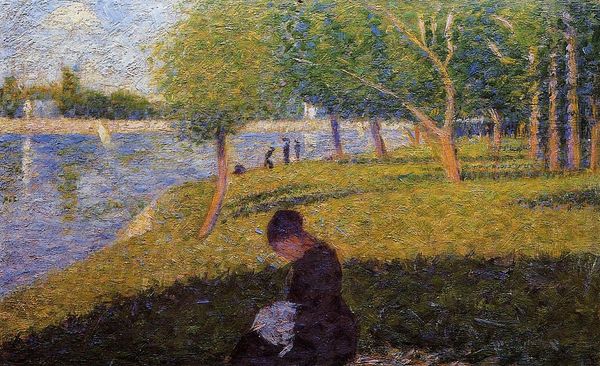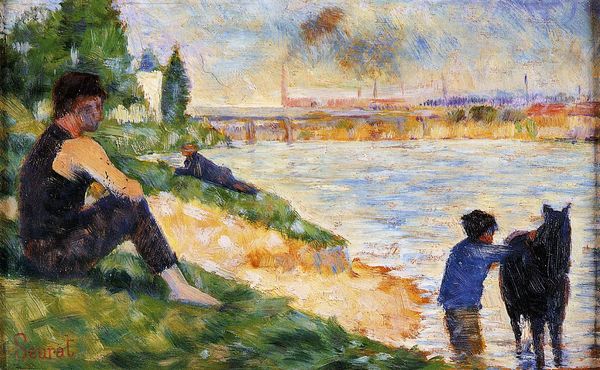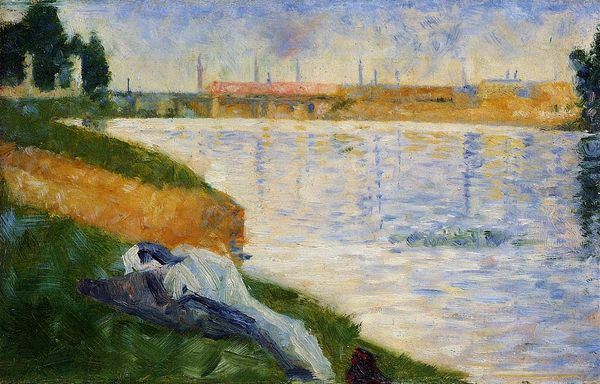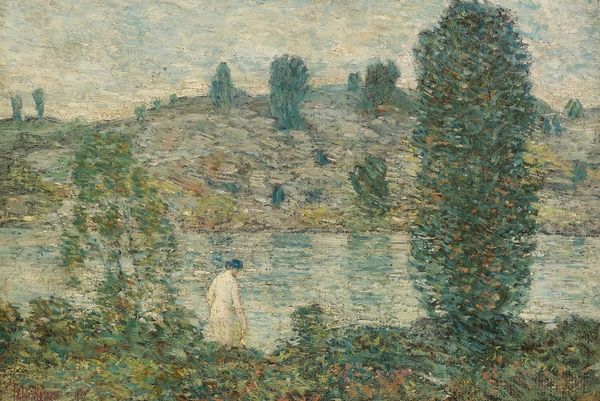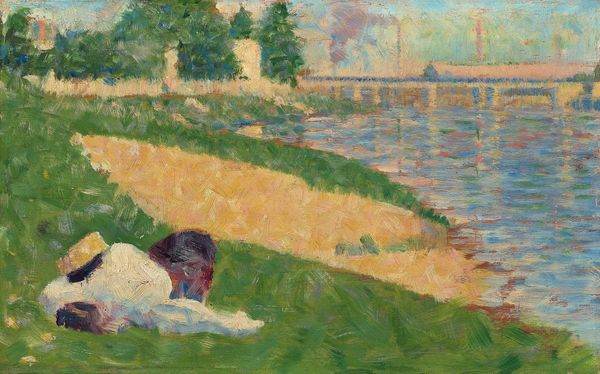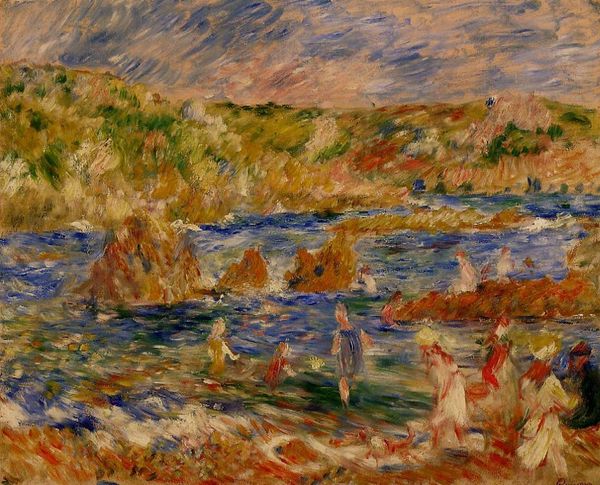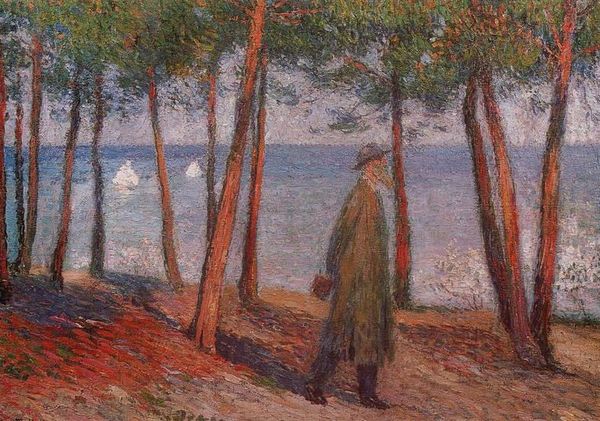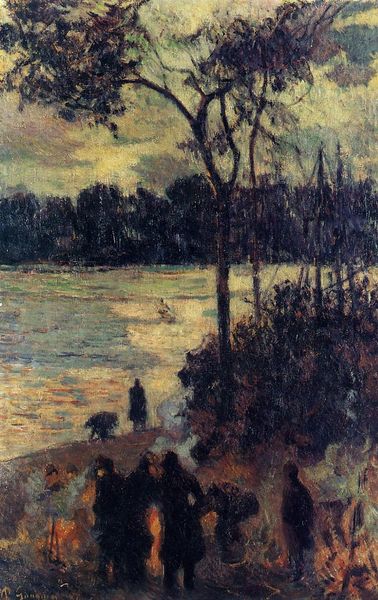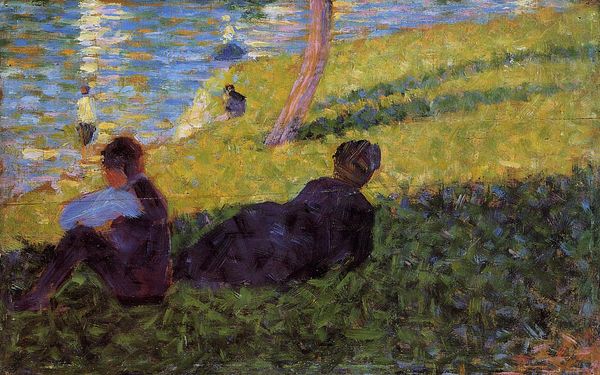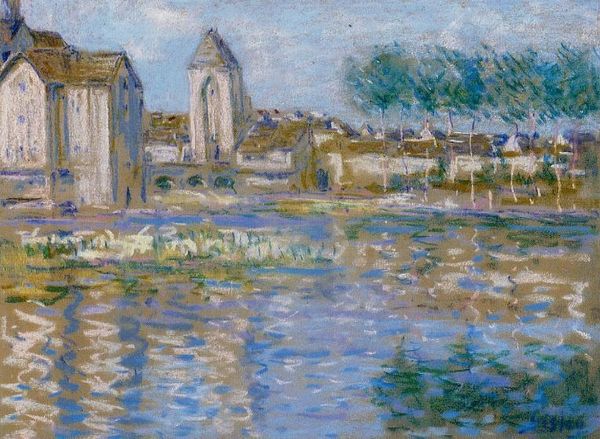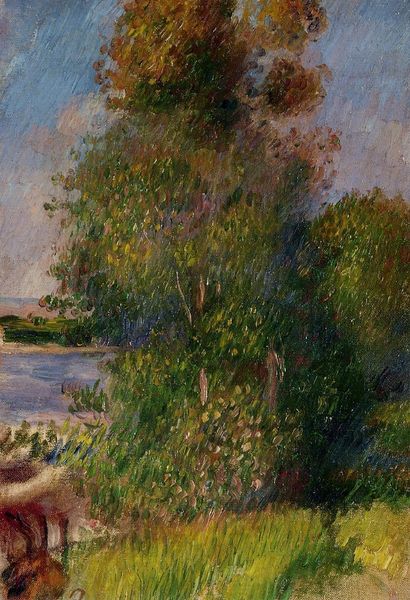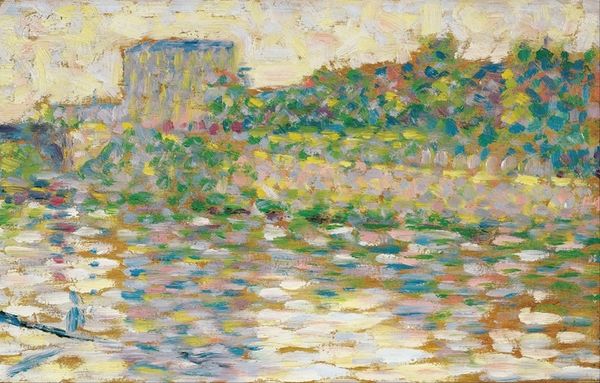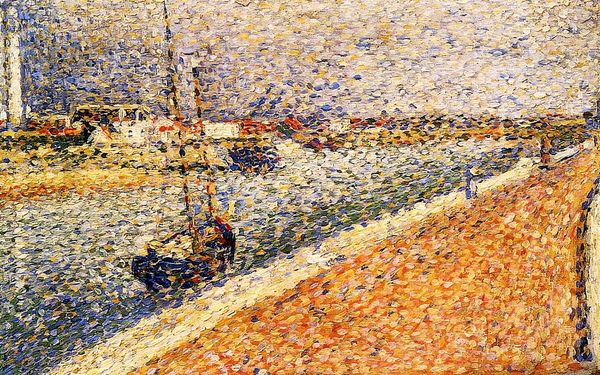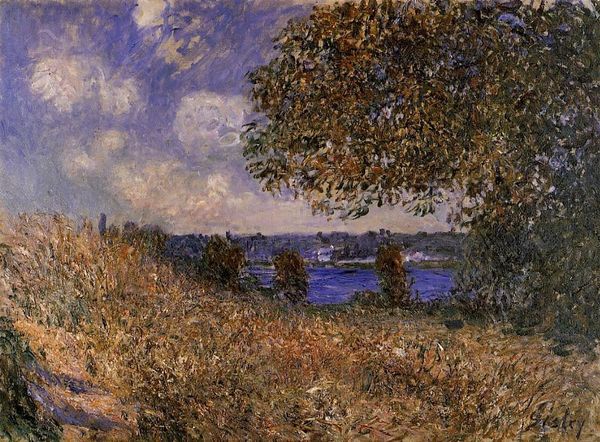
painting, plein-air, oil-paint
#
portrait
#
painting
#
impressionism
#
plein-air
#
oil-paint
#
landscape
#
river
#
house
#
impressionist landscape
#
figuration
#
oil painting
#
seascape
#
water
#
cityscape
#
post-impressionism
#
building
Copyright: Public domain
Curator: Georges Seurat's "Study on the Island," painted in 1884 using oil, offers a glimpse into the artist's exploration of light and form in the French countryside. Editor: Immediately, I am struck by how melancholic the scene appears; despite the idyllic landscape, there's a certain somber quality created through muted tones and lack of distinct features on the figure. Curator: Indeed, it’s easy to overlook how the broader political climate shaped Impressionism's retreat from cityscapes after the Franco-Prussian War. These riverbanks became symbolic spaces of recovery. The painting has this relationship, being a post-impressionist style. Editor: Formally, notice how Seurat juxtaposes coarse brushstrokes along the shore with smoother application in the water, this textural contrast leading our eyes towards the figure in the distance. There's an implied critique, perhaps, of society's distance from genuine experience. Curator: He would later revolutionize this initial, more atmospheric style to more systematized modes like pointillism. We've been discussing art moving away from representing external events towards symbolizing individual perspectives of trauma as national introspection and political silence were common themes for intellectuals during this period. Editor: Looking at the figure, that solitary form seems like an intrusion of reality on the canvas’ impressionistic surface. How, in these types of open landscapes with serene tonalities do you see it referencing or reacting against historical currents then? Curator: Seurat subtly hints at social dynamics and the everyday individual. His scenes resonate because they don’t overtly address political turmoil directly but reveal its effects on ordinary people within modernized and restructured landscapes post war era reflecting quiet alienation. Editor: Absolutely. Even just looking at that composition again you get this subtle sense from such nuanced techniques combined to amplify not just the scenery, but individual stories hidden. These little interactions reveal art as cultural record; the scene shows it’s depth just under surfaces making each stroke worthy observation, like an artifact carrying secrets of change Curator: Such is the brilliance within "Study on the Island" -- the ability to provoke contemplation regarding socio-political dimensions beyond apparent peaceful imagery via purely compositional forms that highlight subtle interactions from landscape painting's early phase towards representing more of what might've existed than immediately meeting perceptions let upon. Editor: Exactly; which really shows why these initial observations become key components shaping larger conceptual meaning that otherwise become missed opportunities during our appreciation!
Comments
No comments
Be the first to comment and join the conversation on the ultimate creative platform.
